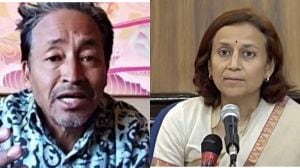Consider setting up inquiry into allegations of corruption in running of night shelters, Delhi HC tells Delhi government
The Delhi Shelter Homes Workers’ Union has alleged ‘large-scale corruption, collusion, and unfair labour practices…in the operation and management’ of night shelters run by Delhi Urban Shelter Improvement Board (DUSIB)
 The HC permitted the union to approach the state government by making an appropriate representation, to be made within a fortnight.
The HC permitted the union to approach the state government by making an appropriate representation, to be made within a fortnight. The Delhi High Court has asked the Delhi government to consider initiating an inquiry into allegations of “large-scale corruption, collusion, and unfair labour practices…in the operation and management” of night shelters in the national capital.
The allegations have been made in public interest litigation (PIL) initiated before the court by the Delhi Shelter Homes Workers’ Union, which represents contractual workers in night shelters run by the Delhi Urban Shelter Improvement Board (DUSIB).
The union, represented by advocate Kawalpreet Kaur, has alleged that contracting NGOs, “in connivance with officials of DUSIB”, are engaged in the fabrication of records, deployment of ghost employees, manipulation of attendance registers, and siphoning of public funds earmarked for the welfare of vulnerable citizens.
Despite repeated complaints and representations submitted to DUSIB, the Lieutenant Governor, and the Delhi government’s Anti-Corruption Branch, no inquiry or corrective action has been taken, the union has said.
The PIL has sought an independent court-monitored inquiry or commission into the alleged wrongdoing, the production of all shelter home records and salary disbursal data from 2018 onward, and an independent financial audit by the Comptroller and Auditor General (CAG) of India.
The union has also asked for the enforcement of biometric attendance, the blacklisting of defaulting NGOs, and criminal action against officials who are responsible for the alleged embezzlement of public funds and violation of labour rights.
Over the period since the enactment of the DUSIB Act, 2010, the board has awarded contracts to several NGOs to act as intermediaries in the management and operation of the shelters. Some 198 shelter homes are being run under this scheme currently.
A Bench of High Court Chief Justice D K Upadhyaya and Justice Tushar Rao Gedela noted on Wednesday (October 29) that the DUSIB Act “entrusts the government with ample authority to take appropriate action which may be warranted in law if any irregularity is noticed in the functioning of the board”, including calling for, inspecting, and examining the records of the board.
“In view of the allegations…we find it appropriate that the issues raised may be inquired first at the government level,” the Bench recorded in its order.
The HC permitted the union to approach the state government by making an appropriate representation, to be made within a fortnight. Once such a representation is made, the government “shall consider to initiate proceedings/ action in terms of sections 26, 27, 28 of DUSIB Act,” the HC directed.
In “any such action, appropriate opportunity of hearing shall be provided not only to the Board, but all concerned including the NGOs” who were made party to the petition, the court said.
The DUSIB Act was passed by the Delhi Assembly on April 1, 2010, and went into force by the orders of the LG on July 1 that year. According to the DUSIB website, the Act empowered the board to notify certain areas as slums, where with the passage of time, the buildings had become dilapidated, and basic civic services are missing. DUSIB also looks after jhuggi jhopri squatter settlements/ clusters by way of providing civic amenities and resettlement.







